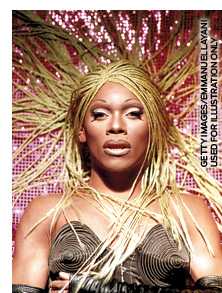A groundbreaking national survey aimed at tracking discrimination and its impact on the health of transgender people produced alarming findings: 2.64 percent of the respondents were living with HIV. That’s four times the rate of the general population (0.6 percent).
 |
| |
Even more telling is that 24.9 percent of black trans people were HIV positive, as were 10.92 percent of Latino respondents (versus 0.78 percent of whites).
“It’s really clear throughout our report that racism is such a compounding factor,” says report coauthor Justin Tanis, D.Min., of the National Center for Transgender Equality, which conducted the survey along with the National Gay and Lesbian Task Force.
Tanis points out that higher levels of racial discrimination, which black trans people often face, can correlate to higher risk of HIV.
Other factors linked to higher HIV rates were making less than $10,000 a year, being unemployed and not having a high school diploma.
The study also suggests employment discrimination may force someone into prostitution for survival (61 percent of HIV-positive respondents had done sex work), and bias or harassment in medical settings may lead trans people to postpone or refuse care.
Survey data, Tanis says, indicate that trans people need HIV prevention tailored for them. Too often, trans people get materials for men who have sex with men. In short, prevention campaigns for trans people need to transcend stereotypes






Comments
Comments